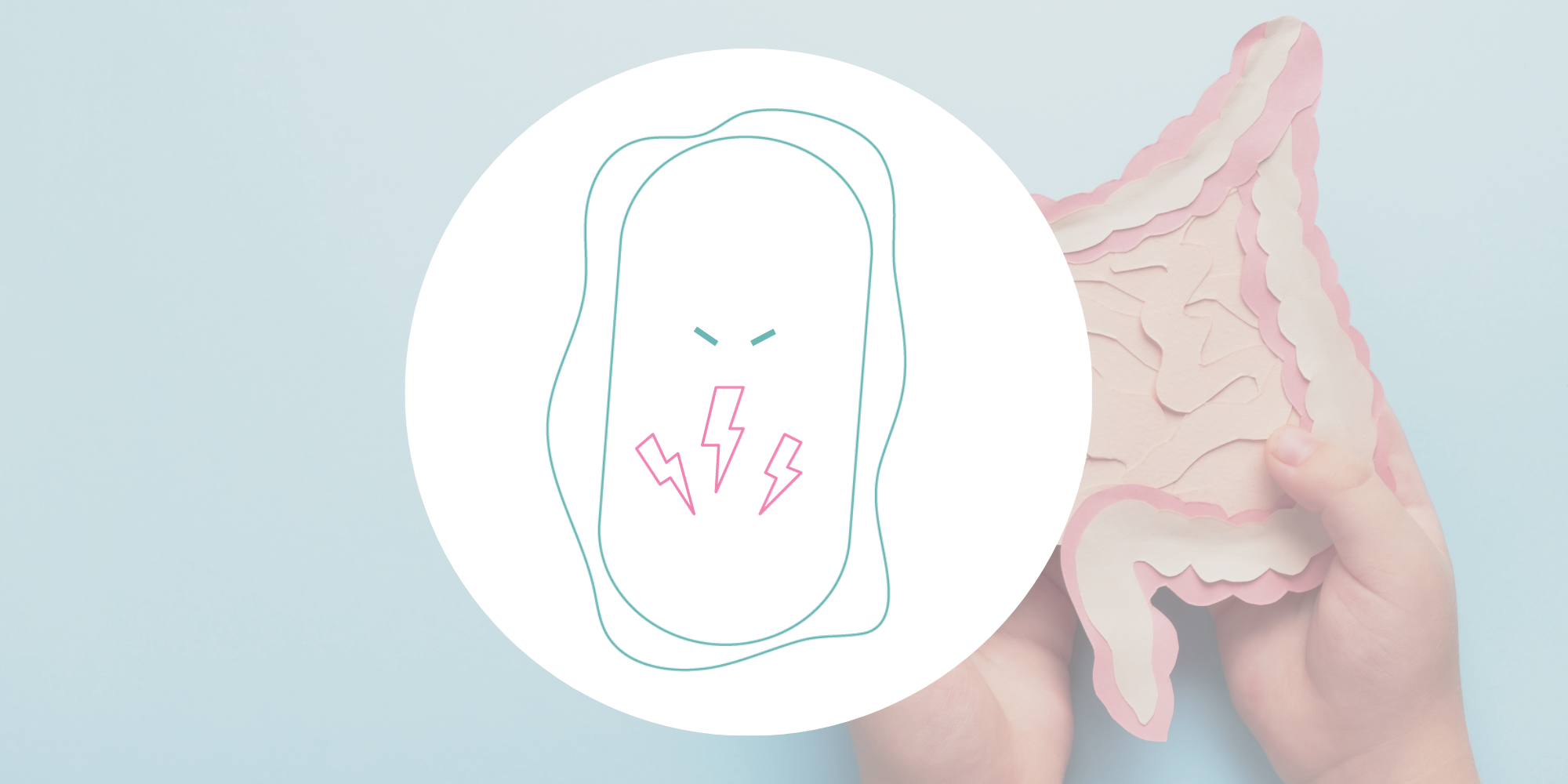Our gut bacteria are crucial in maintaining a healthy immune system, digestive system, and overall gut health. When the balance of these gut bacteria is disrupted, it can lead to a wide range of symptoms. This imbalance can adversely affect your gut health, including digestive issues, immune disorders, and fatigue [1].
In this article, we will explore the symptoms of gut flora imbalance and some common signs to be aware of that may indicate that your gut health needs some extra attention.
Note! Although many connections are found between the microbiome and certain symptoms, this does not always mean that you can solve the symptoms by changing your microbiome. However, we do know that a healthy microbiome is very important for a healthy body. Read more about it here.
Symptoms and complaints
- Digestive issues: Gut microbiome imbalance can lead to various digestive issues, such as bloating, gas, and constipation [2,3,4]. This is because your microbiome is crucial in breaking down food and extracting nutrients. Your gut health may therefore require some extra attention.
- Skin problems: The gut's health can also impact the skin's health. Unhealthy gut bacteria can lead to acne, rosacea, eczema, and other skin conditions [5].
- Autoimmune disorders: Gut flora imbalance have been linked to autoimmune disorders such as rheumatoid arthritis, multiple sclerosis, and inflammatory bowel disease. This is because gut health is crucial in regulating the immune system [6].
- Mood disorders: The microbiota-gut-brain axis is a complex network that links the gut and the brain. A disturbed microbiota can lead to mood disorders such as anxiety, depression, and autism. This shows that gut health even plays a role in your overall mood! [7]
- Weight gain: The microbiome plays a role in regulating metabolism and maintaining a healthy weight. Gut flora imbalance has been linked to weight gain and obesity [8,9].
- Allergies and food intolerances: The microbiome regulates the immune system and prevents allergic reactions. Gut flora imbalance has been linked to allergies and other immune-related disorders. This is because gut health plays a role in breaking down food and extracting nutrients. A healthy gut with diverse bacteria is less likely to have immune-related disorders [10,11,12,13].
- Fatigue: gut flora imbalance can cause chronic fatigue and low energy levels. This is because gut health plays a role in producing specific vitamins and regulating metabolism [14].
- Hormonal imbalances: The microbiome produces and regulates certain hormones such as estrogen and testosterone. Gut health can influence hormones that can lead to various symptoms, such as mood swings, irregular periods, and acne [15].
Gut flora imbalance can lead to various symptoms that can significantly impact overall health and well-being. Even though the relation between causation and results are not fully understood, there is a big potential for the microbiome.By understanding the causes of gut flora imbalance and restoring microbiota balance, we can improve our digestive health, skin health, immune function, mood, weight, and gut health. A healthy microbiome is crucial for maintaining overall health and preventing disease.
Causes of gut flora imbalance:
Several factors can lead to an imbalance in gut bacteria, also known as dysbiosis. Some of the most common causes of this are:
- Antibiotics: Antibiotics are used to kill harmful bacteria, but they can also kill beneficial bacteria in the gut. This can disrupt the balance of the gut bacteria and lead to an unhealthy microbiome.
- Diet: A diet high in processed foods, sugar, and fat can disrupt the balance of the gut bacteria and lead to a disturbed microbiome.
- Stress: Stress can impact the gut bacteria by disrupting the communication between the gut and the brain.
- Environmental factors: Environmental factors such as pollution and chemicals can also impact the microbiota.
Gut flora imbalance can lead to various symptoms and complaints that can significantly impact a person's gut health and well-being. By understanding the causes of gut flora imbalance and taking steps to restore the balance of the microbiome, we can improve our overall health and prevent a range of illnesses and disorders. A holistic approach to health is essential, including proper diet, stress management, and lifestyle changes.
How can I tell whether my microbiota is disturbed?
Everyone's unique microbiota and every disease state produce different patterns, but in general, you can think of the following as signs of a potentially disturbed microbiota:
- Decreased diversity: A diverse microbiome is a strong microbiome
- Decreased butyrate or propionate production: These products are often called short chain fatty acids. They are important sources of energy for your gut and body.
- Increased presence of unwanted species such as sulfate-reducing species (irritates the gut wall), proteobacteria (often seen in low-grade inflammation/obesity) and other unwanted species that we know can cause symptoms.
- Decreased presence of useful species such as keystone species, lactate-producing, mucin converting, and gas forming. Note: balance is important. Again, you don't want too many of these groups.
Check your own results to see how you stand! Don't have any results yet? Then start by ordering your own kit!
